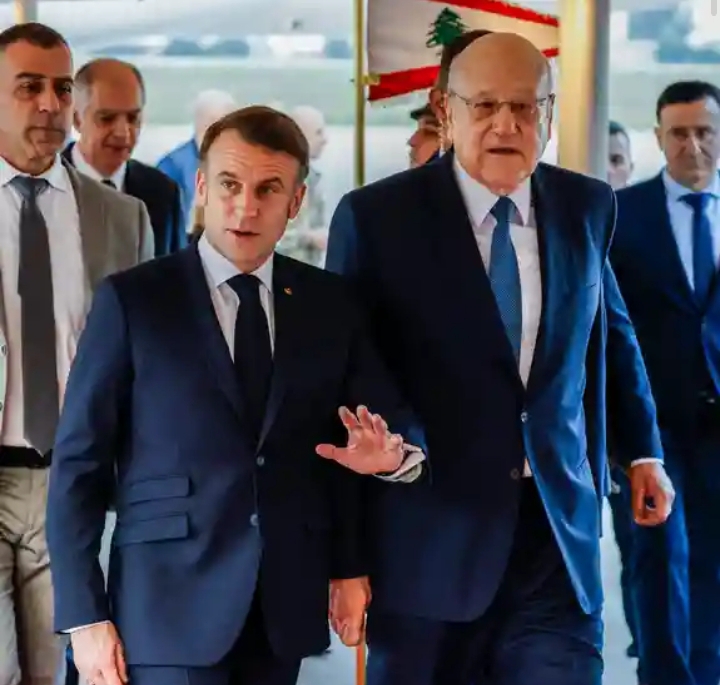French President Emmanuel Macron is currently in Lebanon, a former French protectorate, to engage with the country's new leadership. His visit aims to provide support as Lebanon grapples with its prolonged economic crisis, offering assistance to help steer the nation toward recovery.
Macron Visits Lebanon to Support New Leadership Amid Economic Crisis


France's President Emmanuel Macron arrived in Beirut, Lebanon, on Friday for a visit aimed at reaffirming Paris’s support for Lebanon's new leadership during a critical time. This visit comes as Lebanon faces the daunting task of resolving years of economic crises, which have been further exacerbated by the recent conflict.
Macron is scheduled to meet with Lebanon's newly elected president, Joseph Aoun, who took office on January 9 after a prolonged period of over two years without a president. The French presidency emphasized that the visit’s primary objective is to assist Aoun and Prime Minister-designate Nawaf Salam in consolidating Lebanon's sovereignty, ensuring its prosperity, and preserving its unity.
France has longstanding ties with Lebanon, having administered the country for two decades after World War I. Macron’s visit underscores this historical connection and reflects France's ongoing interest in Lebanon’s stability.
Additionally, Macron will meet with UN Secretary-General Antonio Guterres during his time in Beirut. This meeting comes ahead of a January 26 deadline for the full implementation of a ceasefire agreement between Lebanon's Iran-backed Hezbollah militia and Israel. The ceasefire, which was brokered by France and the US in November, aims to end months of conflict that saw Israeli forces entering southern Lebanon.
The terms of the agreement require the Lebanese army to deploy alongside UN peacekeepers in southern Lebanon as Israeli troops withdraw by the end of January. Hezbollah, in turn, is obligated to move its forces north of the Litani River, about 30 kilometers (20 miles) from the border, and dismantle any military infrastructure it holds in southern Lebanon.
Since the ceasefire was established, France, the US, and Saudi Arabia have worked together to facilitate the election of Lebanon’s new president and prime minister, overcoming the political deadlock that had paralyzed the country. Analysts suggest that Hezbollah’s diminished strength due to the ongoing conflict played a role in making the elections possible.
Before his visit to Lebanon, Macron also held discussions with Saudi Arabia’s Crown Prince Mohammed bin Salman. Following their conversation, the French presidency announced that both leaders had given their full support to the formation of a “strong government” in Lebanon. This government is expected to unite the country's diverse population, ensure respect for the ceasefire between Israel and Lebanon, and implement the reforms necessary for Lebanon's prosperity, stability, and sovereignty.
In recent years, Saudi-Lebanese relations have been strained by a series of diplomatic incidents. However, France has been working to restore Saudi support for Lebanon. French officials are optimistic that Saudi Arabia will provide financial aid and military equipment to bolster the Lebanese army as part of its new deployment. This cooperation is especially important given Saudi Arabia’s concerns about Hezbollah’s influence in Lebanon, which it views as an extension of its regional rival, Iran.

 বাংলা
বাংলা  Spanish
Spanish  Arabic
Arabic  French
French  Chinese
Chinese 
